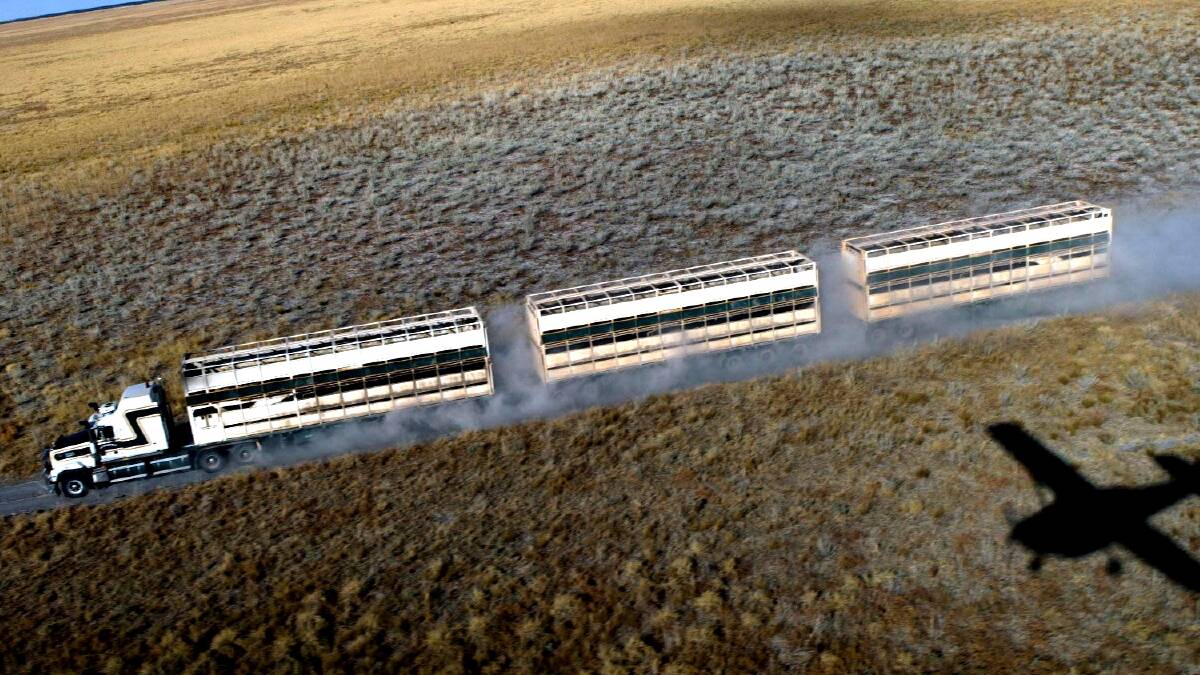
The Australian Livestock and Rural Transporters Association has provided more than 100 recommendations as the National Transport Commission looks to overhaul the Heavy Vehicle National Law.
Subscribe now for unlimited access to all our agricultural news
across the nation
or signup to continue reading
The NTC launched a review of the HVNL in November 2018, calling for stakeholders to provide feedback before new legislation is drafted in November 2020.
The peak body representing rural transport operators has made 108 recommendations on issues ranging from fatigue management, vehicle standards, farm gate access, loading standards and compliance.
ALRTA national president Stephen Marley said the submission was based on feedback provided following a grass-roots member survey and 13 workshops around Australia.
Mr Marley said it was important for industry to identify both problems and potential regulatory solutions.
"Perhaps, not surprisingly, our members have identified a wide array of problems with the current HVNL and the broader heavy vehicle regulatory environment in which it operates," he said.
"However, there was no shortage of opinions on how to fix the current problems."
Mathew Munro is the executive officer of the ALRTA and said one area of the HVNL that required urgent attention was the regulation of off-road infrastructure, including livestock loading ramps and cross-loading facilities.
The ALRTA has been pushing for an enforceable national standard for livestock ramps for at least two decades but the campaign began in earnest in 2013 following an inquest into the death of livestock carrier Chad Lynch, who died after a ramp hoist failed.
Standards Australia is now developing a national standard, which is expected to be published in late 2021.
Related reading:
While the ALRTA welcomes that development, they say any new laws need to specifically regulate the provision of safe off-road transport infrastructure under the chain of responsibility provisions.
As part of their submission, the ALRTA said current workplace health and safety laws, and heavy vehicle chain of responsibility laws were not effective.
"Managers of most loading and unloading facilities remain resigned to doing the absolute bare minimum in line with the lowest-cost option - or will simply take no action at all," the submission reads.
"It is not acceptable that we continue the practice of putting this important sector in the 'too hard basket', thereby exposing our drivers and other road users to on-road safety risks..."
Mr Munro said loading and unloading facilities, such as saleyards, also needed to consider appropriate amenities for drivers.
"Whether they have reasonable facilities for drivers to take a rest, have a shower and get something to eat - these are all very important factors when we are talking about drivers getting appropriate rest," he said.

Cutting red tape
Mr Munro said cutting down on the number of permits required for transport operators to do business was also vital.
"We believe that in 2020 you should be able to get a B Double or a road train to every farm gate in the country," he said.
"In most cases you can, but you may need to get a permit."
Mr Munro said many of the permits required to enter farms can be registration specific, meaning each driver had to apply for a new permit every time they wanted to enter.
He said ALRTA members wanted regulators to consider a notification system, rather than permits.
"We want to get all that red tape out of the system and make sure the law itself is focused on real higher risk safety issues and not just tying people up in red tape," he said.
Tired fatigue laws
The ALRTA also made nine recommendations with regard to fatigue management and Mr Munro said the fatigue laws needed to be far more flexible.
"We have quite a rigid set of fatigue laws and drivers report to us all the time that the law tells them to take a break when they don't feel like they need one, and later, when they might need to take a break, they face productivity penalties if they do," he said.
"We need to give more decision making power back to the drivers and let them have some control over what they do and how they manage their fatigue."
Start the day with all the big news in agriculture! Click here to sign up to receive our daily Farmonline.

